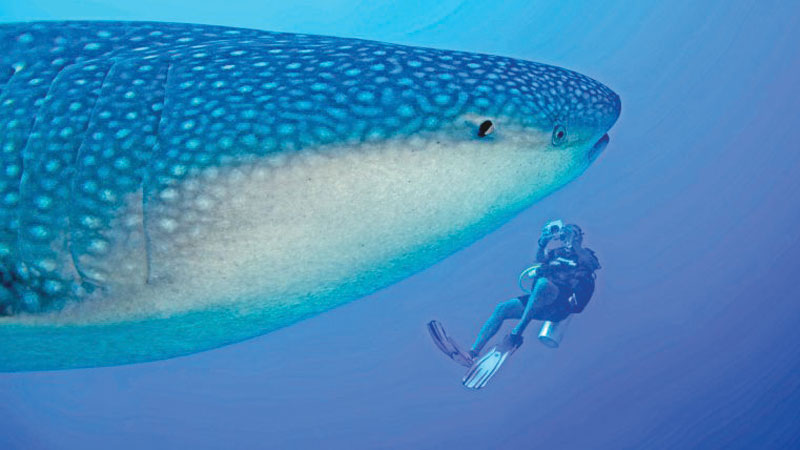


Muscat, April 16 -
Regional and international cooperation is the only way to save sharks, whose numbers are dwindling at an alarming rate around the world, said Dr Akram Issa Darwish, Director of Programs, International Fund for Animal Welfare (IFAW).
“It (protecting sharks) is our responsibility,” said Dr Darwish, the main instructor at the two-day workshop on ‘Combating illegal trade of sharks’, which began in Muscat on Monday.
The workshop was held under the auspices of Najeeb bin Ali al Rawas, Under-Secretary, Ministry of Environment and Climate Affairs (MoECA). It was attended by officials and experts from both local and international organisations.
“To protect them, seven species of sharks and manta were included in Annex II of Convention on International Trade in Endangered Species (CITES) in 2013.
“In 2016 conference, members agreed to grant sharks protection through the regulation of fishing and international trade, which was an extraordinary precedent,” said Dr Darwish.
He said many species of sharks are migratory fish, making their conservation a matter of international cooperation to protect them from extinction along their migratory routes.
“So far, CITES has included 28 species of sharks and manta as migratory species that require protection,” he added.
Seventy million sharks are being hunted every year around the world, resulting in a marked decline in their number, according to IFAW.
As shark fishing is a very popular activity around the world, the practice endangers survival of the species.
Sulaiman bin Nasser al Akhzami, Director-General of Nature Conservation, MoECA, said the Sultanate’s wildlife has been receiving special attention from His Majesty Sultan Qaboos and his government.
He asserted that the “establishment of natural reserves and issuance of the law of nature reserves and conservation of wildlife as per Royal Decree No 6/2003 translates the country’s interest into wildlife’s protection.
“We all have a responsibility to ensure that land and marine biological resources are used sustainably for the benefit of present and future generations”.
Megan O’Toole from PEW Charitable Trusts Foundation, indicated that the importance of conserving marine species, especially sharks, should not be limited to conserving a food resource for coastal communities, but to preserve the ecological value of species that play an important role in the ecological balance.
“The tourism value of these species is far more valuable than that as a delicacy,” she said. The workshop comes at a time when the number of sharks has declined sharply in recent years because of the trade in shark fin, which is used to make a kind of soup.
It aims to provide participants with information on procedures needed at the border crossings to verify the validity of CITES certificates and acknowledge them with local legislations and agreements on sharks.
Oman Observer is now on the WhatsApp channel. Click here



